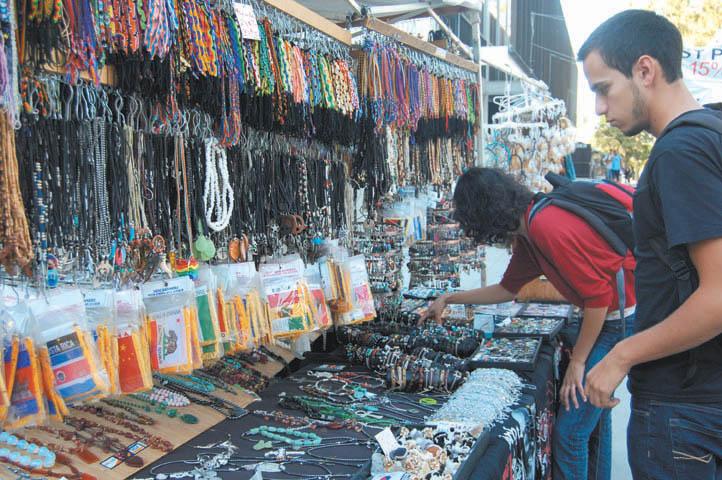Campus vendors fight fluctuating sales, but manage to keep their heads afloat.
Chris Chan — owner of the Vena company, which sells fashion accessories — said his business has seen a 25 percent drop in sales compared to last semester.
He has accommodated this trend by buying less merchandise from his supplier.
“We have to accept that the economy is not doing too well right now,” Chan said. “So my company is making less profit while trying to give our customers the best price we can offer.”
Ali Najafi owns a larger business near Chan’s, and sales for his company have not fluctuated much, Najafi said, but he changed his living arrangements and commuting habits in order to increase his profit margin.
Although CSULB does not actively seek out campus vendors, the university welcomes any potential businesses that would appeal to the college crowd. Usually vendors contact CSULB and express interest in working with the Outdoor Vendor Program coordinated by bookstore director Fred Neely.
Merchandise and service vendors must adhere to campus regulations and have state-required $1 million liability insurance to conduct their businesses at the university.
Service vendors, who set up tables promoting off-campus businesses, must pay a table fee of $150 for each day they set up their tables on campus.
Merchandise vendors must pay 20 percent of their profits back to CSULB. The 20 percent is used to help students on campus, according to general manager and CEO of 49er Shops Don Penrod.
Details of how the 20 percent goes back to campus weren’t described, other than the outdoor vending program is self-supporting.
“It is nice for students to have unique products available to them on campus,” said Sylvia Ferracioli, who oversees the Outdoor Vendor Program with Neely. “We are building diversity for our students, and this makes us feel that we have a good product base.”




